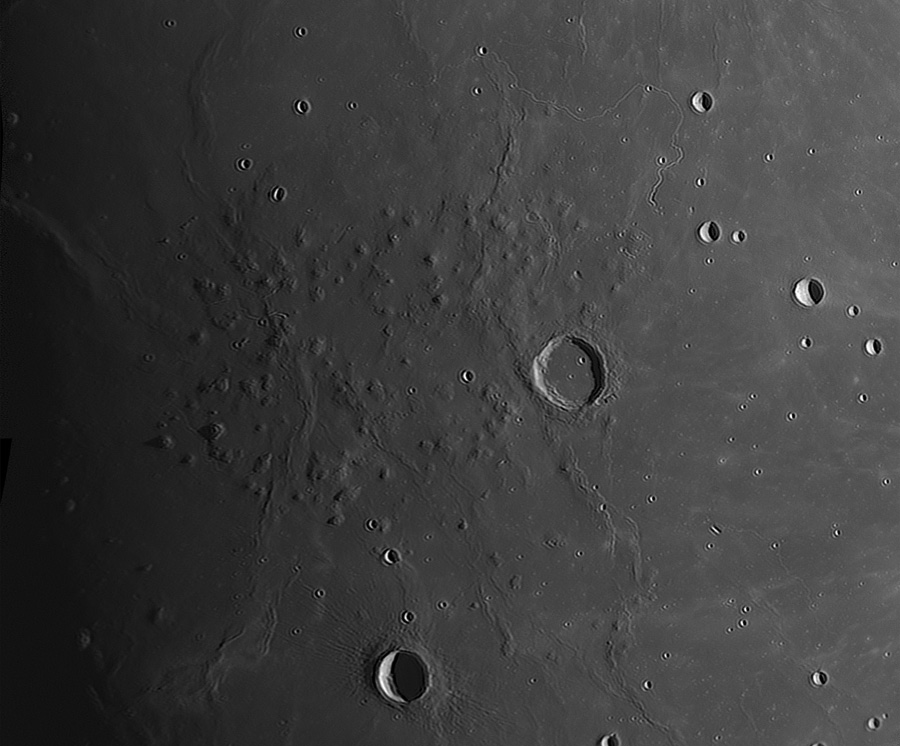March 30, 2024
The Hills Were Once Alive, but There Was No Music
Originally published March 16, 2014

image by Maximilian Teodorescu, Dumitrana, Romania
If you have never seen the Marius region like this before it probably because Max has transformed his telescopic view to provide an overhead perspective - hence the flat-floored crater Marius is nearly round. This excellent image with moderately low Sun shows the rough texture of the Marius hills - not smooth like most domes and four of the rilles in and near the field. Although I am not sure I noticed the broad lava flows on the north side of the Hills before Kaguya's wonderful HDTV image, they are easily visible here. The relationship between the Marius Hills and the mare ridges is not certain to me. This lighting does reveal that ridges do extend thru the Reiner Gamma albedo feature, but apparently are not part of it. The ridges of radial ejecta from Reiner, at bottom center, appear to extend over the albedo markings suggesting that the crater is younger.
Chuck Wood
Technical Details
The mosaic is made out of two images, each a 1800 frames stack, on the night of March 13, 2014 with a C 11 SCT @F/20 and a ASI120MM camera with IR-pass (685nm) filter. The seeing was variable, from 4 to 6/10.
Related Links
21st Century Atlas chart 27.
Max's blog
Yesterday's LPOD: Have You Knowingly Seen This Basin?
Tomorrow's LPOD: A Different Kind of Swirl
COMMENTS?
Register, Log in, and join in the comments.



